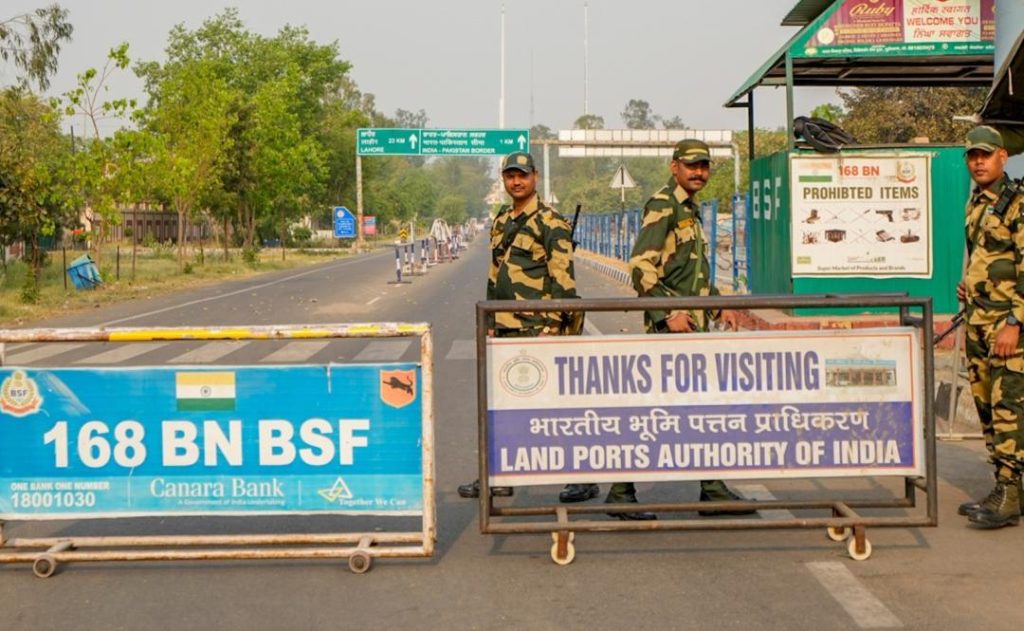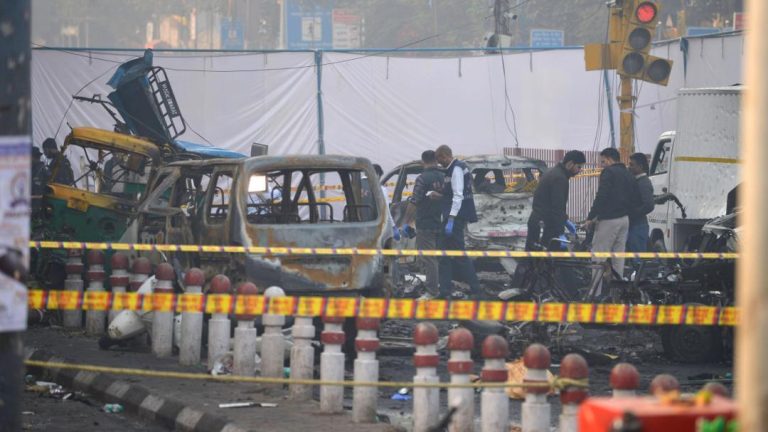
Attari-Wagah Border Between India and Pakistan Completely Closed
The Attari-Wagah border, a significant crossing point between India and Pakistan, has been completely closed, according to a report by PTI on Thursday. The border, which was previously open for people to cross, has been shut down, with no individuals from either side allowed to enter the other country.
This development comes after Pakistan took the decision to stop accepting its citizens who were being deported by India. The mass deportations were a result of the Pahalgam terror attack, in which 26 tourists were killed. The attack has led to a heightened sense of tension between the two nations, with both sides taking steps to strengthen their border security.
The closure of the Attari-Wagah border is a significant development in the ongoing diplomatic tensions between India and Pakistan. The border has been a key point of entry for people traveling between the two countries, with thousands of people crossing it every day. The closure of the border will have significant implications for trade, tourism, and personal travel between the two countries.
The Pahalgam terror attack, which took place on October 8, was a devastating incident that left 26 people dead and many more injured. The attack was carried out by a group of terrorists who infiltrated the tourist area and opened fire on innocent civilians. The attack has been widely condemned by people from all over the world, and both India and Pakistan have been working to strengthen their border security to prevent such attacks in the future.
In the aftermath of the attack, India has taken several measures to strengthen its border security. The government has increased the number of security personnel deployed along the border, and has also increased the use of technology to monitor the border. Additionally, India has also increased the number of deportations of Pakistani citizens who are found to be involved in terrorist activities or who are suspected of being involved in such activities.
Pakistan has also taken several measures to strengthen its border security. The government has increased the number of security personnel deployed along the border, and has also increased the use of technology to monitor the border. Additionally, Pakistan has also increased the number of deportations of Indian citizens who are found to be involved in terrorist activities or who are suspected of being involved in such activities.
The closure of the Attari-Wagah border is a significant development in the ongoing diplomatic tensions between India and Pakistan. The border has been a key point of entry for people traveling between the two countries, and its closure will have significant implications for trade, tourism, and personal travel between the two countries.
The closure of the border will also have significant implications for the economies of both countries. The border is a major trade route, and the closure of the border will disrupt the flow of goods and services between the two countries. Additionally, the closure of the border will also have significant implications for the tourism industry, which is a major source of revenue for both countries.
In conclusion, the closure of the Attari-Wagah border between India and Pakistan is a significant development that highlights the ongoing diplomatic tensions between the two nations. The border has been a key point of entry for people traveling between the two countries, and its closure will have significant implications for trade, tourism, and personal travel between the two countries. The Pahalgam terror attack, which was the catalyst for the closure of the border, was a devastating incident that left 26 people dead and many more injured. Both India and Pakistan have been working to strengthen their border security to prevent such attacks in the future.






